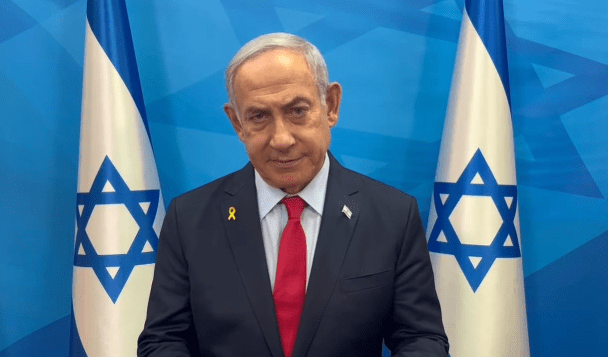Benjamin Netanyahu Heads to Egypt for Pivotal Gaza Peace Summit
In a significant political move, Israeli Prime Minister Benjamin Netanyahu is set to attend the Gaza Peace Summit in the Egyptian littoral megacity of Sharm El- sheikh.
The peak, anticipated to begin imminently, marks a pivotal step in ongoing indigenous peace sweats and comes on the heels of violent transnational dialogue.
Sources verified that the decision followed a phone discussion between Egyptian President Abdel Fattah El-Sisi and U.S. President Donald Trump, which took place before moment while Trump was in Israel.
During the call, Netanyahu joined the discussion, emphasizing Israel’s growing engagement in addresses aimed at stabilizing Gaza.
According to an official statement from the Egyptian presidency, “President El-Sisi received a phone call from President Donald Trump while the latter was in Israel, accompanied by Prime Minister Benjamin Netanyahu, who also joined the conversation.”
The two leaders reportedly reached a collective agreement that Netanyahu would share in the high-profile peak, joining a canon that includes Palestinian President Mahmoud Abbas and other transnational delegates.
The Sharm El-sheikh peace agreement’s central ideal is clear to support the Gaza ceasefire and strengthen the fragile armistice that has kept pressures at bay in recent months.
officers say the addresses will also concentrate on reconstruction sweats in Gaza, a region still reeling from the desolation of conflict.
In a statement released by the Egyptian presidency, it was highlighted that the summit seeks to “consolidate the Gaza ceasefire agreement and reaffirm all parties’ commitment to maintaining peace and supporting post-war reconstruction efforts.”
The peak, co-chaired by chairpersons El-Sisi and Trump, serves as a fresh demonstration of Egypt’s vital part as a middleman in Middle Eastern peace sweats.
The Red Sea resort, known for hosting major political engagements, has become a symbol of Cairo’s continuing influence in indigenous affairs.
Political judges note that Benjamin Netanyahu’s presence signals a conservative yet meaningful step towards rejuvenating dialogue between Israel and its neighbors.
While prospects remain tempered, the optics of similar participation are seen as an encouraging sign of openness.
“This gathering is not just about Gaza,” one regional observer commented. “It’s about redefining the tone of cooperation in the Middle East, one conversation at a time.”
While the summit’s outcomes remain to be seen, the inclusion of both Israeli and Palestinian leadership hints at renewed momentum in long-stalled peace efforts.
Many view it as a delicate but hopeful attempt to bridge divides that have long stifled progress.
Whether this meeting translates into tangible results will depend on the political will of those at the table, and the delicate balance of power that continues to shape the region’s future.
For now, the world watches Sharm El-Sheikh, where diplomacy meets the desert wind, and perhaps, the first whispers of renewed peace.






